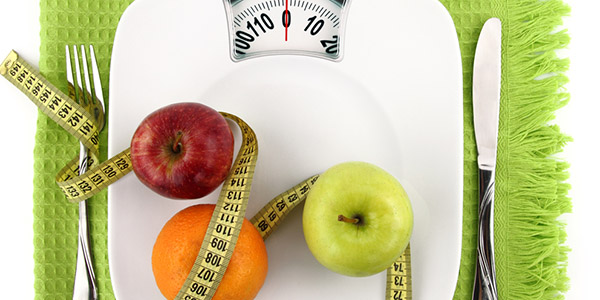Why Can’t I Lose Weight?
Why Can’t I Lose Weight?
If you are feeling the intense frustration that comes with working hard to lose weight and not being able to drop pounds…we understand. Don’t throw in the towel just yet - we have great news and tips you won't want to miss!

Maybe you are already dieting. Maybe you started an exercise routine, and you have been really good about sticking with it. Maybe you always order a salad for lunch, and you avoid fried foods. All of these things are amazingly positive changes. But if the scale is still stuck and you are wondering, “Why can’t I lose weight?” then we have some great news you can’t afford to miss.
First, we have to toss the “calories in versus calories out” motto onto the garbage. We just have to get rid of that mindset, for a moment, because for most people who have a hard time losing weight, counting calories alone is just not enough.
Second, if you know how to set up an environment in your body that favors fat breakdown, you will unlock your body’s weight loss potential quick, fast, and in a hurry. So how can you create an environment in your body that loves burning fat? Brace yourself. After this, you’ll never wonder why you can’t lose weight again.
Setting the Foundation for Weight Loss
To create a weight loss environment inside every cell in your body, first you’ve got to turn off all of the signals that tell you to store fat instead of burn it. Extra calories from excess food will be stored, but only if you have the hormonal signals telling it to be converted into fat tissue. The hormone responsible for storage signals? Insulin. This is the same insulin that is commonly associated with diabetes.
Insulin is a fed-state hormone, which means you only release it after a meal. When insulin is present, it is king of the jungle, and it overrides and trumps all other hormone signals. Other hormones have to take a second seat to insulin, and insulin’s main job is to store nutrients, and fill up cells after a meal. This even includes filling up fat cells—with fat.
Insulin is a deal breaker when it comes to losing fat, because it turns off the enzymes that help you mobilize and release fat to burn it up. Fat has to leave a fat cell in order to be burned. Insulin stops fat from leaving fat cells. Not only does insulin turn off enzymes that help fat molecules exit fat cells, insulin also stops the process of the breakdown or ‘burning’ of fat in its tracks. We’re not talking just a stop sign. Imagine the whole interstate coming to a screeching halt. That kind of stop. Insulin will tell all energy and nutrients to be taken up into cells and stored.
The important message here? If excess insulin is floating around in your bloodstream all day and all night, you will have a most difficult time losing weight, especially losing fat tissue. Because your body is constantly being told to store, store, store by insulin, you’re not ever achieving a weight-loss environment in your body. In order to lose, you’ve absolutely got to get your insulin production under control.
Restoring Proper Insulin Balance
How do you train your body to release only the insulin it needs to transfer the energy from the food you’ve eating into your cells? It is important, after all, to have some insulin on board in order to absorb the amino acids from proteins in your meal, for example. However, when you eat a high carbohydrate or high sugar meal—such as pizza and breadsticks, or a pancakes and hash browns, for example—your body will release a LOT of insulin to deal with all of that glucose that you’ve introduced into your body. When you are dieting, after you eat a high-carb meal, your body reverses engines, spins the propeller the other way, and begins processing and storing and uptake of nutrients with a large insulin release.
Meals that Make Weight Loss Difficult
When you regularly eat meals that are high in carbohydrates, over time your body will become desensitized to the effects of insulin and will need to produce more and more of it in order to move blood glucose – energy – into your cells. This can cause an imbalance where the insulin levels in your blood are always high, effectively storing every extra bit of glucose away as fat. After all, that’s insulin’s job, and it takes its job very seriously. The effect that this has on your metabolism is devastating, and causes a cascading effect that only gets worse with time if not stopped in this tracks. Picture water doused over a fire, all that will be left is a little steam. That’s what the extra insulin released when you eat a high-carb meal does to your body’s fat-burning environment. And you’re wondering why you can’t lose weight even when you are trying so hard!
In contrast, when you eat a meal that contains a healthy balance of protein, complex carbs and healthy fats, a properly functioning metabolism will release only the insulin it needs to absorb the energy from that meal, and no extra. As a result, hormones that work toward burning calories and using up stored fat will be allowed to take over more quickly. Hormones that cause stored calories to be released and freed for your body to burn include glucagon, growth hormone, and even cortisol. When these hormones are operating, and especially in combination with exercise – you will finally be able to lose weight, and you won’t be stuck wondering why you can’t lose weight anymore. Additionally, as you modify your diet to include healthier, choices featuring lean protein sources, limited amounts of complex carbs and healthy fats you can begin to retrain your metabolism to function as it should. When you create the right environment in your body you’ll be able to lose weight and finally reach your weight loss goals.
-
Use the NEAT factor (nonexercise activity thermogenesis) to burn calories
Even when youre not intentionally exercising, youre still expen
-
Weight Loss And BMR - What Is Basal Metabolic Rate?
Today most diet and exercise programs fo
-
How can these five basic steps can trick your self into losing weight
Here are seven small tricks that can guarantee which you slim down, sh
-
Fantastic Ideas That Can Enhance Your Weight Loss
Many people have a hard time trying to lose weight. Implement th
-
Weight Loss And Staying Motivated
Trying to lose weight has probably got to be the single most difficul
-
Exercise Speeds Up Weight Loss
Most people join the gym or begin their
- DON'T MISS
- The Mental Game Of Weight Loss
- The Need to Eat Organic Produce
- Top 5 Healthy Diets That Help to Protect Your Diet Introduction
- Acai Berry Helps Your Quick Weight Loss Program
- Gastric Bypass Is Easy Weight Loss Changing Public Perception
- Atkins Diet Plan Whats It All About
- Diet And Workout Rules For Weight Loss Success
- Weight Loss For Teens: Shaping Up Playfully
- Weight Loss Goals - How To Lose Weight Without Knowing It
- Enjoy A Daily Walk And Start Getting In Better Shape




